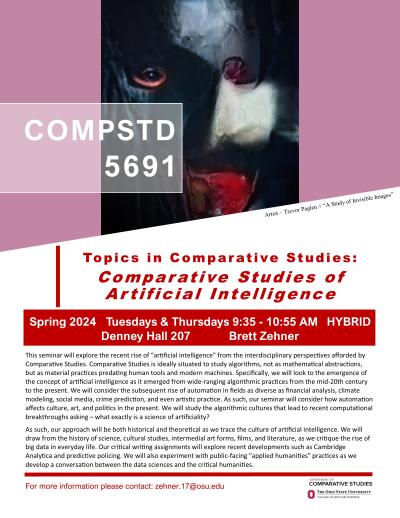
Topics in Comparative Studies: Comparative Studies of Artificial Intelligence
Tuesdays and Thursdays 9:35-10:55 AM, Denney Hall 207 - Please note this is a HYBRID course
Brett Zehner
This seminar will explore the recent rise of “artificial intelligence” from the interdisciplinary perspectives afforded by Comparative Studies. Comparative Studies is ideally situated to study algorithms, not as mathematical abstractions, but as material practices predating human tools and modern machines. Specifically, we will look to the emergence of the concept of artificial intelligence as it emerged from wide-ranging algorithmic practices from the mid-20th century to the present. We will consider the subsequent rise of automation in fields as diverse as financial analysis, climate modeling, social media, crime prediction, and even artistic practice. As such, our seminar will consider how automation affects culture, art, and politics in the present. We will study the algorithmic cultures that lead to recent computational breakthroughs asking – what exactly is a science of artificiality? As such, our approach will be both historical and theoretical as we trace the culture of artificial intelligence. We will draw from the history of science, cultural studies, intermedial art forms, films, and literature, as we critique the rise of big data in everyday life. Our critical writing assignments will explore recent developments such as Cambridge Analytica and predictive policing. We will also experiment with public-facing "applied humanities" practices as we develop a conversation between the data sciences and the critical humanities.
